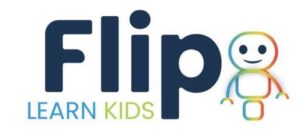Dive Brief:
-
Just days after Democrats criticized a House Republican bill that would give parents more authority over education decisions, House Democrats introduced their own “Bill of Rights for Students and Parents,” a resolution that supports inclusion of learning about diverse groups.
-
The resolution stresses five major points needed in public schools: a well-rounded education for all students, authentic parental involvement especially for those from diverse backgrounds, inclusive schools where students and educators feel supported and cared for, environments that protect students’ civil rights, and providing a historically accurate education.
-
The resolution also characterizes recent curriculum censorship efforts — which have spread in conservative-leaning states — as “denying students access to books” that reflect culturally diverse experiences, adding that such measures compromises the education of all students, takes away their choice, and limits their opportunities to “think critically about the world around them.
Dive Insight:
The resolution, which would not carry the force of law that the Republican bill would, supports the inclusion of LGBTQ and racially and religiously diverse students and families, and other marginalized identities, in schools.
Rep. Suzanne Bonamici, D-Ore., introduced the resolution measure on Friday, with 27 other Democrats signing on and with backing from nearly 50 education and advocacy organizations.
The resolution is among the first to establish a bill of rights for parents and students from Democrats. It comes after Democrats in the House Education and the Workforce Committee accused Republicans last week of attempting to dictate local governance through its bill.
“I introduced the Bill of Rights for Students and Parents because we need an inclusive, affirmative vision for public education,” said Bonamici in a statement on Friday. She said she hopes the measure would support “collaboration between parents and their children’s educators.”
The resolution stands in stark contrast to the Republican bill, which is supported by 111 Republicans and advanced to a full House vote last week. That bill would require schools to make their curricula public, provide parents a list of library books, and offer a minimum of two parent-teacher meetings a year.
A spokesperson for Bonamici said the measure was introduced as a resolution rather than a bill because it is meant to serve as a blueprint for public education. Themes and elements from the resolution are likely to show up in future legislation and amendments, they added.
The two opposing approaches reflect the division across party lines that are a culmination of debates building in states nationwide in recent years.
Since September 2020, some 203 local, state and federal government entities have introduced a total of 619 anti-critical-race-theory bills, executive orders, opinion letters, statements and other measures, according to CRT Forward, an initiative of the University of California Los Angeles School of Law that tracks anti-CRT measures.
In 2022, 36 states introduced 137 bills seeking to restrict topics like race, gender, sexuality and U.S. history in public schools and colleges, according to a 2022 PEN America report.
At the same time, other states have introduced measures to require curricula reflecting the experiences of various ethnic groups, including Asian Americans, Native Hawaiian and Pacific Islanders, Black people and others.
The sometimes opposing policies have created a stark partisan divide on how race-related topics are covered in curricula — one that’s now being reflected at the highest levels of the American government.
However, according to a January poll of over 1,500 voters, nearly three-fourths of parents said teachers in their schools generally stick to teaching appropriate academic content and skills in educators. Rather than disagreements over “woke” politics in the classroom, voters cited academic skills, providing equal opportunity and ensuring safe environments as their top priorities for K-12 schools.






Leave a Reply